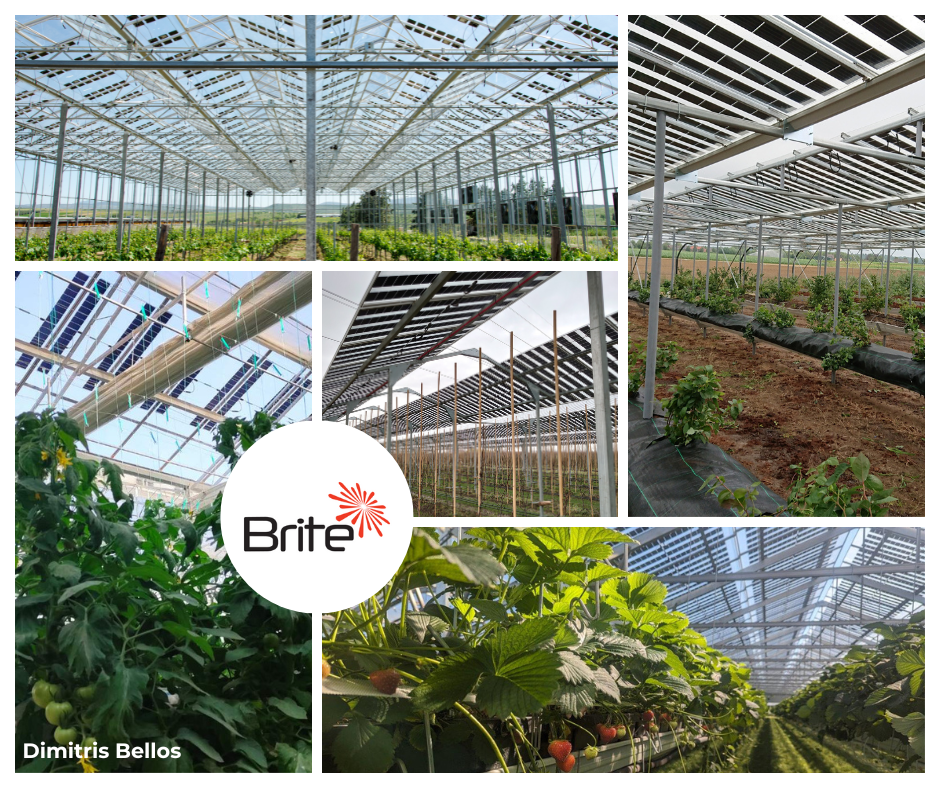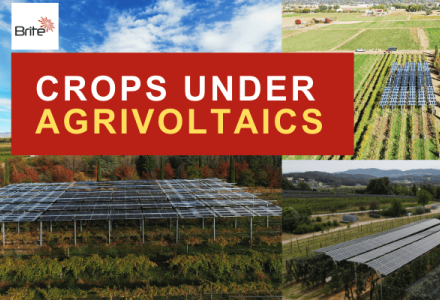Feeding the Earth, Powering Tomorrow – Why Agrivoltaics Are the Future of Farming
Agricultural production is at a critical juncture, as challenges posed by climate change and population growth make it necessary to seek sustainable solutions. Agrivoltaic systems offer an innovative approach, combining food production with energy generation, transforming agriculture as we know it.
Environmental Benefits
The implementation of agrivoltaic systems has significant environmental benefits. These systems reduce reliance on conventional fuels, thereby limiting CO2 emissions and promoting green energy. Their integration into agricultural practices helps preserve soil health by reducing erosion and degradation.
Agrivoltaics also protect biodiversity by providing shelter for various plant and animal species. Additionally, they enhance the natural process of photosynthesis, as plants benefit more from the solar energy not absorbed by the panels.
Technological Aspects
The technology behind agrivoltaics has rapidly evolved. Modern solar panels can be installed above agricultural fields without removing crops. This dual-use strategy allows farmers to continue their activities while simultaneously producing clean energy.
The placement of solar panels can be adjusted to ensure optimal performance for both crops and energy production. Custom installation angles and the use of semi-transparent panels can enhance the sunlight reaching the plants, allowing them to grow more efficiently.
Production Quality Improvement
Adopting agrivoltaic systems enhances crop quality in various ways:
Improved Resilience: The shade provided by the panels protects crops from heatwaves and extreme weather conditions. This reduces plant stress, leading to fewer diseases and greater resistance to pest attacks.
Increased Nutritional Value: Crops grown under the shade of solar panels have been shown to exhibit higher concentrations of nutrients. This boosts the nutritional value of the produce, meeting the growing consumer demand for healthier options.
Enhanced Quality Control: The integration of smart monitoring and control technologies in agrivoltaic setups allows continuous monitoring of crop growth. This helps farmers quickly identify problems and apply corrective measures, ensuring high quality and efficiency.
Diverse Cultivation Systems: The flexibility of agrivoltaics allows farmers to experiment with new methods and crops, improving product diversification. This is crucial in a market that demands innovation and adaptability.
Sustainability and Responsibility: By improving production quality, farmers can market their products as more sustainable and environmentally friendly. This can increase demand in the marketplace and boost product value, making them more competitive.
Energy and Water Conservation
Agrivoltaic systems contribute to energy conservation by generating electricity that can be used for irrigation systems. This reduces overall energy consumption and cuts costs.
Additionally, the shade provided by the panels reduces water evaporation from the soil, ensuring that crops have access to adequate moisture. Better management of these resources boosts productivity and the efficiency of farming operations.
Weather Protection
With the increase in extreme weather events, farmers face new challenges. Agrivoltaic systems act as a shield, protecting crops from strong winds, hail, and excessive sunlight. This protection reduces damage and ensures successful harvests.
Incentives and Investments
The shift towards agrivoltaics is supported by state and European incentives, making investment in them more attractive for farmers. Piraeus Bank provides financing for such investments, ensuring that farmers can invest in sustainable solutions that will improve crop yields.
The need for the immediate implementation of these systems is crucial, as the challenges posed by climate change continue to escalate. Their integration can ensure a more sustainable and efficient agricultural sector.
Conclusion
Agrivoltaic systems offer a sustainable and innovative solution to the challenges facing agriculture today. The dual use of land and the enhancement of product quality are just some of the benefits they provide.
Brite Solar is at the forefront of this revolution, offering tailor-made semi-transparent panels designed to meet the specialized needs of every application. For more information, visit our website Brite Solar.
























